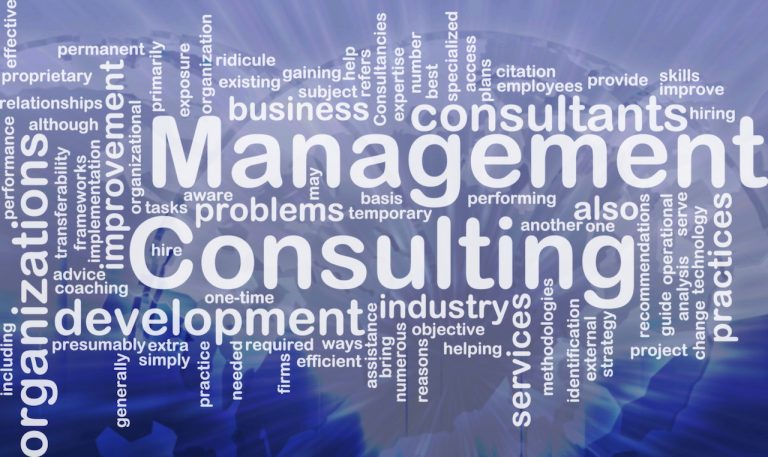Management consulting is a fascinating field. Having the ability to impact and change the lives of our clients is one of the most fulfilling things a consultant can do. We help our clients grow through partnership, insight, and inspiration.
Over the course of my career as an external management consultant, I’ve come across many professional services leaders and their employees. I’ve seen consultants who are extremely successful at their craft, and those who struggle to create positive change with their clients. The difference between the two groups boils down to learning, and putting into practice, certain principles. These guiding principles will help any consultant strengthen their capabilities, especially if you’re just breaking into consulting.
- You Don’t Learn How to be a Management Consultant in School: All consultants must go through some type of formal training. Whether it’s a doctorate degree, a MBA, or some other advanced degree, there are certain skills that graduate school provides. Three of these skills include the ability to think, reason, and write. Every consultant regardless of industry or sector needs these skills in their toolkit. Unfortunately, outside of those skills, there isn’t a lot that graduate training provides. Sure, we learn theory and concepts, but nothing replaces life experience. You cannot teach someone how to be an executive coach. You can expose students to research and theory in the area, but nothing beats learning on the job through apprenticeship or supervision. Leaders in education must, in the future, find ways and means of teaching people how to apply the knowledge they receive in school. They must deal more with practice and less with theory. And, as fun as regression, multivariate analysis, and IRT are, they aren’t sexy words to senior executives.
- It’s All about Relationships: Management consulting is about relationships. There are internal and external relationships. Internal relationships are most relevant for consultants in professional services firms. Before you get to sit in front of clients you need to build relationship with colleagues so that they trust bringing you into their work. External relationships are the ones with our clients and prospective buyers. I cannot stress the importance of making a concerted effort to build long-term sustainable partnerships with both groups. Internal relationships will give you exposure; external relationships will get you work.
- Humility Leads to Long-term Success: Humble consultants thrive. You must be willing to share what you know and admit what you don’t. Every consultant has additional things they can learn that will enhance their professional toolkit. Bringing a humble mindset to our work enables us to grow with our clients. We are experts in our respective domains, but we can always learn from those around us—both clients and colleagues.
- Great Work Leads to More Work: If you want to grow your portfolio, the best way to do it is with great work. Great work leads to more referrals, it gives confidence in colleagues looking to bring you into more work, and it helps to build a brand of excellence. The quickest way to lose a client is by putting forth a poor, half-hearted effort. A colleague once told me that the quickest way to build trust and drive impact is by the quality of work you do. Focus on giving your all and you will reap greater influence and more exposure to exciting and increasing challenging work.
- Work with Masters of the Craft: There are godfather figures in our field. Those that have been management consultants for long, illustrious careers. As a new consultant, it is critical to identify those that are at the top of their game and partner with them. You don’t even need to do the work with them, you can simply request to shadow or observe how they work with clients. Some of the most inspiring client engagements I have ever worked on were when I partnered with senior consultants and had the opportunity to learn from them. There is something powerful that happens when we witness excellence. It is in the subtleties and nuances in their style that helps to strengthen our approach to working with clients.
- Watch One, Do One, Teach One: The timeless adage. If you want to learn a specific consulting service the best way to do so is the watch one, do one, teach one methodology. This is most relevant for high stakes engagements. For example, CEO Succession is probably one of the most significant engagements a consultant can work on. You can’t learn how to do it effectively unless you first get to see a seasoned colleague conduct the engagement. Next, you should get your hands dirty and do one yourself. Completing the cycle involves bringing in another colleague so that you can teach them the approach or methodology. This crystallizes the learnings and gives you the upper hand in doing the work with greater knowledge and clarity on future engagements.
- Be Persistent and Consistent in Building and Maintaining your Professional Network: I cannot stress the importance of your network. This is where you build brand recognition, find prospective buyers, and leverage referrals. Consultants run into challenges in this space when we get busy delivering work, and put network-building on the back burner. You must be persistent and consistent in expanding your network. Whether this involves asking current clients for referrals, attending industry events, or joining professional societies, you must always be looking to expand your sphere of influence. I recommend setting aside a full day each week for business development endeavors. Ambitious consultants can break this down to an hour or two every day. To avoid the feast or famine of consulting, you always should look to grow your network.
- Champion Your Ideas: In consulting, there are many ways to skin a cat. There is a litany of psychometric instruments that can be used in conjunction with an executive assessment or executive development process. There are different approaches to doing executive coaching. There are different methodologies for conducting an executive assessment. You should find the approach and methodology that works best for your style and personality. At the same time, you must be willing to champion your ideas. Some of the most inspiring colleagues that I’ve ever worked with consistently brought a fresh perspective to their work. They were willing to innovate and come up with new ideas that would make them better at their craft. Look for ways to constantly be better than you were the day before. You’ll get some pushback when championing your ideas, but I’ve found that original thought adds tremendous value to the clients we serve.
- Make Learning a Lifelong Priority: Our field is ever changing. Hot topics come and go. Right now, there is a major focus on transformational change, big data, and high potential development. This will change in time. To constantly be at the top of your game, you need to be willing to make learning a lifelong priority. Doing the same thing year after year has a negative effect on our ability to grow our portfolios over time. Be willing to learn new skills, take time to keep up-to-date on recent trends, and finds ways to grow.
- Be Willing to Change with the Times: Related to making learning a lifelong priority is the willingness to change with the times. I saw this principle is action during the recession of 2008-2009. Many professional services firms had to close their doors because they weren’t willing to change with the external business environment. The ones that weathered the storm re-evaluated their approach and made the necessary changes to continue their client impact. We must adapt to the circumstances around us. Whether this is developing a new service offerings or adjusting one we’ve used for a while, the ability to change is critical to the life of any consultant.
Management consulting is not for the faint of heart. There are long hours, tedious assessment reports to write, and clients that can be extremely difficult to work with. However, the rewards greatly outweigh the infrequent challenges. To touch the lives of clients in a positive fashion, and help them improve their overall leadership effectiveness, is one of the greatest callings in life.
Adam C. Bandelli, Ph.D. is the Managing Director of Bandelli & Associates, a boutique consulting firm focusing on leadership development and organizational effectiveness.
Leadership Matters. Without It, People Fail.


